
- This event has passed.
January 9 @ 9:00 am - January 10 @ 12:30 pm SMT
Free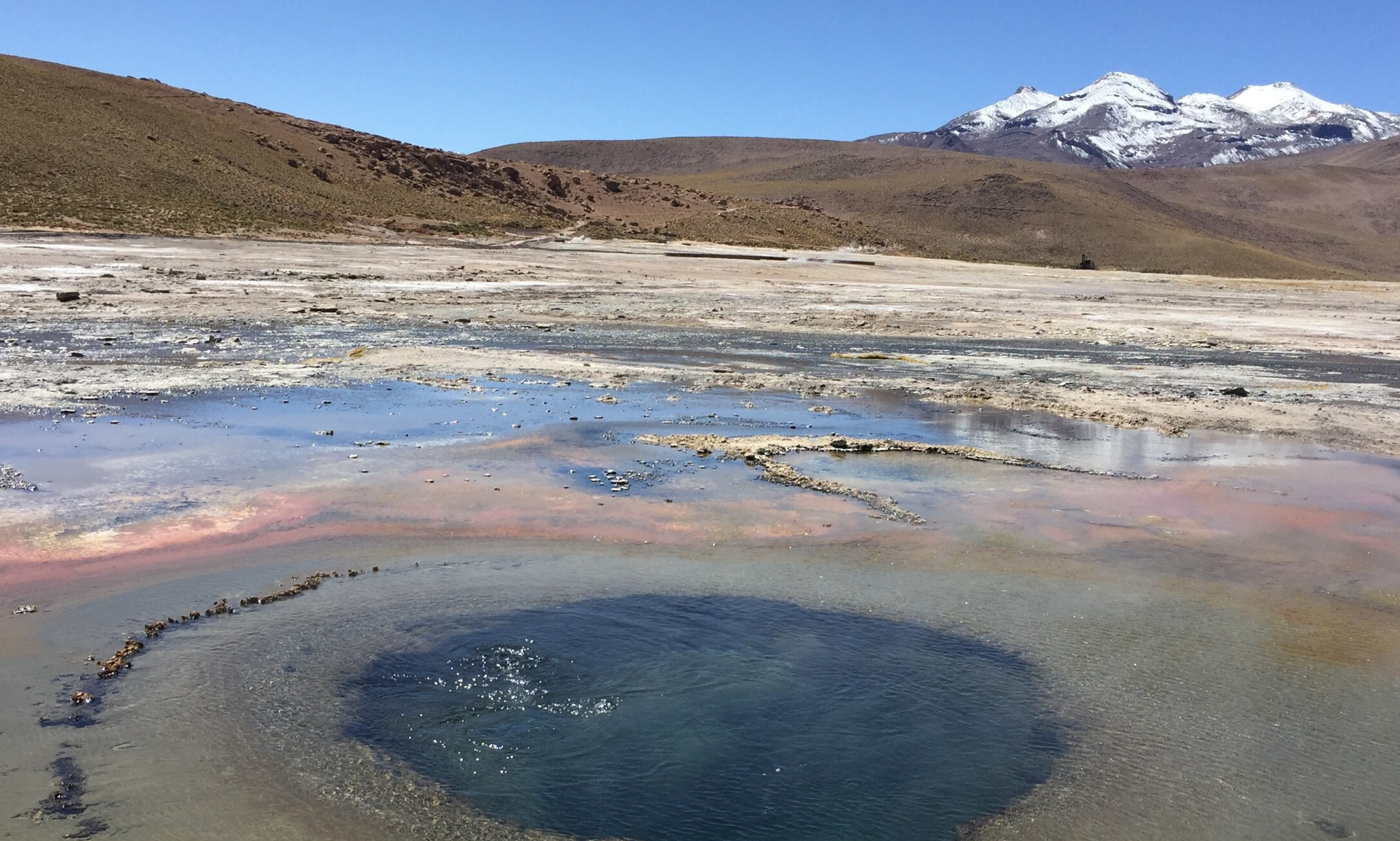
January 9 - 10, 2024
Human societies are facing an ecological crisis of global proportions. Accumulation of Greenhouse gases in the atmosphere is shifting the planets radiative balance and increasing global temperatures. The increased temperatures and associated climate change is resulting in desertification, extreme weather events and less predictable weather patterns. This represents a major challenge to marine, land, and air ecosystems, and threatens the very foundations of human civilization.
Microbial diversity, crucial for human and ecosystems health, is globally threatened by climate change and urbanization. Unless the urgency of preserving it is recognized and research to understand the functions of the microbiome diversity is encouraged, it risks being lost.
There is a clear association between industrialization/urbanization and the rocketing of immune and metabolic malfunctions leading to diseases such as asthma, allergies, type 1 diabetes, celiac disease, etc. Microbes at risk of extinction will be needed in the future to reverse the worldwide trends of increasing chronic diseases.
The current symposium, held by scientists from America, Asia, Africa and Australia, encompasses talks from the fields of microbiology, molecular biology, ecology, bioinformatics, anthropology, conservation, preservation, ethics, and public health. The symposium will discuss and promote the value of microbial biodiversity and the importance of conservation efforts.
The target audience are students, researchers, and policy makers, in particular from Chile and South America.GloMiNe for Chile is the fourth of a series of symposia to help establish a global microbiome network. The GloMiNe for Chile is hosted by the Pontificia Universidad Católica de Chile and organised by a committee which includes institutions from America. This is an initiative under the mission of Microbiota Vault to conserve long-term health for humanity and the environment where we live.
Registration is free but required. Please RSVP at the top of the page.
Deadline: January 9th, 2024
Program (Online Event)
Day 1 – Jan 9th
Starting 09:00 am UTC-3 / 12:00 pm UTC / 07:00 am EST / 1:00 pm CET / 10:00 pm AEST / 2:00 am HST / 4:00 am PST
Welcome (9:00-9:15)
9:00-9:05
María Elena Boisier – Director for Research P. Universidad Católica de Chile
9:05-9:10
Aisén Etcheverry Escudero – Minister of Science, Technology, Knowledge, and Innovation, Government of Chile
9:10-9:13
Rodrigo A. Gutiérrez – Director for Research and Planning. Facultad de Ciencias Biológicas, P. Universidad Católica de Chile
9:13-9:15
Maria Gloria Dominguez-Bello – President, The Microbiota Vault
Session 1: The Human Microbiome – Moderator: Beatriz Diez (9:15-12:00)
9:15-9:30
Phil Hugenholtz –The University of Queensland, Brisbane, Australia: Finding the needles in the haystack: data-driven selection of therapeutic candidates from the human gut microbiome
9:30-9:45
Thomas Bosch – Universität Kiel, Germany: Importance of preserving microbial biodiversity, an evolutionary informed perspective
9:45-10:00
Martin Blaser – Rutgers University, USA: Microbiome and Health
10:00-10:15
Ana Maldonado-Contreras– University of Massachusetts, USA: Increasing representation in microbiome research
10:15-10:30
Break
10:30-10:45
Lars Engstrand – Karolinska Institute, Sweden: Culturomics, a crucial part in microbiota collections
10:45-11:00
Manuel Frankhauser – Seerave Foundation: Role of foundations in the MV-Initiative
11:00-11:15
Maria Carmen Collado – IATA-CSIC Valencia, Spain: Early life microbiota: factors influencing and relevance for human health
11:15-12:00
General Discussion
Lunch
Session 2: Culture, Environment, Ecology and Ethics – Moderator: Rodrigo A. Gutiérrez, (1:00-3:30)
1:00-1:15
Valarie Blue Bird Jernigan – University of Oklahoma, USA: Partnering with Indigenous Communities to Support Traditional Indigenous Foodways- the Center for Indigenous Innovation and Health Equity microbiome research
1:15-1:30
Beatriz Diez – P. Universidad Católica de Chile: Microbiome structure, biogeography, and interactions in hot spring environments
1:30-1:45
Filipa Godoy- Vitorino – Universidad de Puerto Rico: Caribbean Biodiversity Matters: ecosystems, health and education
1:45-2:00
Mauricio González – INTA, Universidad de Chile: Structure of plant-associated microbial communities in the Andean Atacama Desert.
2:00-2:15
Break
2:15-2:30
Jean Baptiste Ramond – P. Universidad Católica de Chile: Functional profiling of Atacama Desert edaphic niches
2:30-2:45
Raquel Quatrini – Universidad San Sebastián, Chile: Acidic microbiomes as model systems in eco-evolutionary studies
2:45-3:00
Amber Hartman Scholz – Leibniz Institute DSMZ, Germany: What does international environmental law have to do with the microbiome? A brief overview of the Nagoya Protocol, Access and Benefit-sharing, and Digital Sequence Information
3:00-3:15
Alika Maunakea – University of Hawaii, USA: Understanding the Epigenomic Origins of Diabetes Disparities in Native Hawaiians and Pacific Islanders to Enable Prevention
3:15-3:30
General Discussion
Day 2 – Jan 10th
Starting 09:00 am UTC-3 / 12:00 pm UTC / 07:00 am EST / 1:00 pm CET / 10:00 pm AEST / 2:00 am HST / 4:00 am PST
Session 3: Methods of collection, preservation and research – Moderator: Nicole Trefault (9:00-12:30)
9:00-9:15
Eduardo Castro – Universidad de Talca, Chile: Composition, taxonomy, and functional diversity of the microbiota in asthma in Chile, USA, and Portugal
9:15-9:30
Pascale Vonaesch – University of Lausanne, Switzerland: Pilot study of the Microbiota Vault
9:30-9:45
Mathieu Groussin – Kiel University, Germany: The Microbiome Conservancy: Preservation & multiomics investigation of the global gut microbiome
9:45-10:00
Anton Lavrinienko – ETH Zurich, Switzerland: The importance of metadata standards for integrative microbiome research
10:00-10:15
Javiera Ortiz Severín – INTA, Universidad de Chile: Exploring antibiotic resistance in marine bacteria using phenotypic and metagenomic approaches
10:15-10:30
Curtis Huttenhower – Harvard T.H. Chan School of Public Health, Harvard University, USA: A multi-omic view of the human microbiome’s unique molecular activities
10:30-10:45
Julieta Orlando –Universidad de Chile e Instituto Milenio BASE, Chile: Microbiomes at the end of the world: from a community to an intra-population perspective
10:45-11:00
Break
11:00- 11:15
Nicole Trefault – Universidad Mayor, Chile: Understanding sponge-microorganisms symbiosis in extreme environments.
11:15- 11:30
Rob Knight – Univ California San Diego, USA: Microbiota analyses from 36,000 feet high
11:30-12:25
General discussion
12:25-12:30
Closing remarks Rodrigo A. Gutiérrez, P. Universidad Católica de Chile
Organizing Committee
Christian Blanco | Beatriz Díez | Maria Gloria Dominguez-Bello | Laura Gautschi | Rodrigo A. Gutiérrez | Marcelo Meregalli Ferrer | Pía Trivelli | Dominik Steiger
Organizing Institutions



Speakers
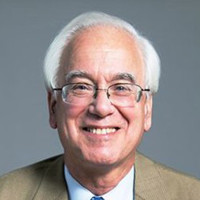
Martin Blaser
Professor at Rutgers University
Martin J. Blaser holds the Henry Rutgers Chair of the Human Microbiome and Professor of Medicine and Microbiology at the Robert Wood Johnson Medical School as well as Director of the Center for Advanced Biotechnology and Medicine at Rutgers University. A physician and microbiologist, his research has centered on the relationship of humans and bacteria, both as foes and friends. He has served as the Chair of Medicine at NYU, as President of the Infectious Diseases Society of America, and now as Chair of PACCARB (Presidential Advisory Council for Combating Antibiotic Resistant Bacteria). His award-winning book for general audiences about our changing microbiota, Missing Microbes, has been translated into 20 languages.
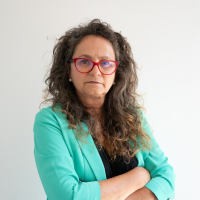
María Elena Boisier
Pontificia Universidad Católica de Chile
María Elena Boisier is Director of Research at the Vice-Presidency for Research at Pontificia Universidad Católica de Chile since 2015. Her professional trajectory has been dedicated to pioneering research management, primarily in the Chilean public sector, while leveraging her expertise in universities. She was Deputy Director of the Millennium Scientific Initiative and directed FONDECYT (National Research Grants) and FONDAP (Associative Research in Key Areas) programs, both developed by CONICYT (currently known as the National Agency for Research and Development, ANID). She was then Executive Director at CONICYT. Ms. Boisier graduated with a BA in Anthropology from the University of Chile and later obtained an MBA from Pontificia Universidad Católica de Chile.

Thomas Bosch
Dr. rer.nat., Professor Director, Zoological Institute and Interdisciplinary Centre for Applied Life Sciences (KLS), Collaborative Research Centre “Origin and Function of Metaorganisms, Kiel University, Germany.
Thomas Bosch is a biologist and as one of the founders and Director of the DFG Collaborative Research Center “Origin and Functioning of Metaorganisms” addresses the role of multi-organismic interactions between microbes and hosts for health and disease. In his research he studies the intricate interactions between microbes and hosts in simple and evolutionary informative model systems.
.
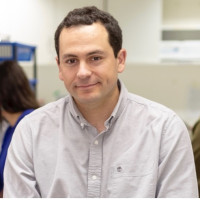
Eduardo Castro
Universidad de Talca
Eduardo Castro Nallar is professor at Universidad de Talca, Chile. His lab is interested in understanding the causes and consequences of microbial genetic diversity, and how we can apply this knowledge to gain insights into pathogen diagnostics and discovery, microbial distribution and epidemiology, and novel adaptations.

Maria Carmen Collado
IATA-CSIC, Spain
Maria Carmen Collado is Full Professor at the Institute of Agrochemistry and Food Technology-Spanish National Research Council (IATA-CSIC), Valencia, Spain and also, Docent (adjunct professor) of the University of Turku, Finland.
Her research is multidisciplinary and includes microbiology, food science, and nutrition to study the microbiota-host interactions during pregnancy and early life, with a particular focus on the role of maternal diet and the impact of breastfeeding on health at short and long term.
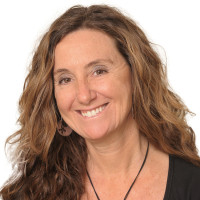
Beatriz Diez
Pontificia Universidad Católica de Chile
Beatriz Díez is Associate Professor in the Department of Molecular Genetics and Microbiology at the Pontificia Universidad Católica de Chile, and Researcher at the Millennium Institute Center for Genome Regulation (CGR) and the FONDAP Center for Climate Science and Resilience (CR2) in Chile.
Her lab studies the structure, function, biogeography and interactions of microbial and viral communities in extreme environments in Chile and Antarctica, using a combination of metaomic and biogeochemical approaches.

Maria Gloria Dominguez Bello
Rutgers University
Maria Gloria Dominguez Bello is the Henry Rutgers Professor of Microbiome and Health at Rutgers University, in the Departments of Biochemistry & Microbiology and of Anthropology. Her lab focuses on multidisciplinary approaches to address antimicrobial impacts of modern urban practices on the microbiomes, and strategies for restoration. She is a member of the American Academy of Microbiology, and a fellow of the Infectious Disease Society of America.
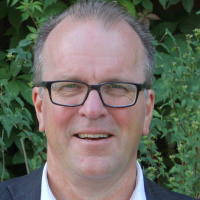
Lars Engstrand
MD, Professor and Director, Centre for Translational Microbiome Research, Karolinska Institutet, Stockholm, Sweden.
Lars Engstrand has more than 35 years experience as a clinical microbiologist. In a number of studies, population-based epidemiology has been combined with clinical and basic microbiological science, including molecular biology and genomics. Similar approaches have been applied on studies of the human microbiome in health and disease. He is currently PI and collaborator in a number of prospective population-based studies with focus on cancer, reproductive medicine and gut related disorders. Well-defined samples from these studies are cultured to identify key players in the microbiota that are associated with health and disease and potential candidates in drug development.

Aisén Etcheverry Escudero
Ministra de Ciencia, Tecnología, Conocimiento e Innovación, Chile
Aisén Etcheverry, serving as the Minister of Science, Technology, Knowledge, and Innovation (CTCI), brings expertise in digital technologies and CTCI public policies. She has spearheaded initiatives on personal data protection, open Science, access to knowledge, and big data technologies. In the public sector, Aisén held key roles at INAPI (National Industrial and Intellectual Property Department), the Ministry of Economy, and led digital transformation and research agencies. In the private sector, she served as Public Policy Manager for the Southern Cone at Amazon Web Services. Aisén, a lawyer graduated from Universidad de Chile with a Master’s degree from the University of San Francisco, implemented equity policies in CTCI development instruments at ANID
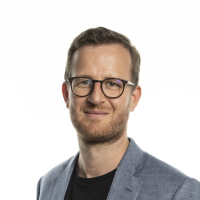
Manuel Fankhauser
CEO of Seerave Foundation
Manuel Fankhauser is CEO of Seerave Foundation, an independent family foundation that aspires a world where guidance and tools to optimise and protect the human-microbial immune symbiosis are incorporated into standard clinical oncology treatment protocols to prolong and save patients’ lives. Manuel holds a PhD in bioengineering from the Swiss Federal Institute of Technology in Lausanne (EPFL).
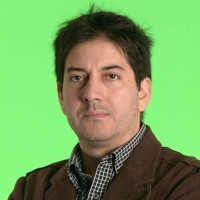
Rodrigo A. Gutiérrez
Pontificia Universidad Católica de Chile
Rodrigo A. Gutiérrez, PhD, is the Director for Research and Planning at the Faculty of Biological Sciences, Pontificia Universidad Católica de Chile. He’s a full professor and former Chair of the Department of Molecular Genetics and Microbiology. Rodrigo, with a background from Michigan State University, has received prestigious awards, including the Howard Hughes Medical Institute International Early Career Scientist award and the Friedrich Wilhelm Bessel Research Award. He’s renowned for integrating classical experimental biology, functional genomics, and bioinformatics to study molecular mechanisms in plant form and function, particularly adaptive responses to low nitrogen environments in model and wild plant species.

Mathieu Groussin
Kiel University, Germany
Mathieu Groussin is Professor at Kiel University, Germany. He is the co-founder and co-leader of the Global Microbiome Conservancy, whose mission is to biobank the global diversity of human-associated bacteria to create new knowledge on the microbiome, to disseminate this resource to the community and to increase representation in science. His lab aims at understanding the impact of lifestyle and disease on the function, ecology and evolution of gut microbiomes, and to leverage this knowledge to identify actionable microbial features that can be used to improve human health.
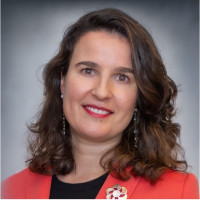
Filipa Godoy -Vitorino
University of Puerto Rico, Puerto Rico
Filipa is Professor at the University of Puerto Rico, School of Medicine, and the Chair of the Department of Microbiology.
A native of Portugal, Filipa developed her career studying biodiversity associated with animal and human microbiomes, investigating an eclectic collection of topics, community dynamics, and dysbiosis in different systems. She pioneered microbiome studies in the Caribbean region.
She is an International Society for Microbial Ecology (ISME) Ambassador and past President of the AAAS Caribbean Division.

Mauricio Gonzales Canales
INTA-University of Chile, Chile
Mauricio Gonzalez is member of the Center for Genome Regulation Millennium Insntitute, and professor at Institute of Nutrition and Food Technology (INTA) if University of Chile. The last 10 years, his lab focusses on the functional genomics, co-occurrence networks and ecology of microbial communities inhabiting the Atacama Desert soils.

Phil Hugenholtz
The University of Queensland, Brisbane, Australia
Phil Hugenholtz is Director of the Australian Centre for Ecogenomics at The University of Queensland.
As a microbiologist, he has made significant contributions in the field of culture-independent analysis of microorganisms. He discovered and characterized numerous previously unrecognized major bacterial and archaea lineages and has developed a systematic genome-based classification for prokaryotes.
Phil is an elected Fellow of the American Academy of Microbiology, and the current President of ISME
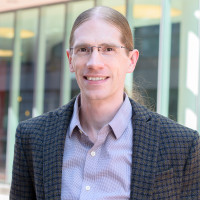
Curtis Huttenhower
Harvard T.H. Chan School of Public Health
Curtis Huttenhower is a Professor in the Departments of Biostatistics and Immunology and Infectious Diseases at the Harvard T.H. Chan School of Public Health, where he co-directs the Harvard Chan Microbiome in Public Health Center. He is an Associate Member at the Broad Institute. His lab focuses on methods for functional analysis of microbial communities, molecular epidemiology of the human microbiome, and its potential as a diagnostic tool and point of therapeutic intervention.
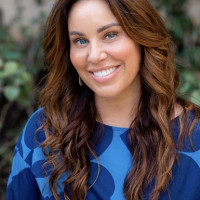
Valarie Blue Bird Jernigan
Oklahoma State University
Dr. Jernigan is the director of the Center for Indigenous Health Research and Policy at Oklahoma State University. She has been the principal investigator for over a dozen research studies focused on improving Indigenous food environments. She is a member of the 2025 Dietary Guidelines for Americans Advisory Committee and the National Academy of Sciences Unequal Treatment in Healthcare Advisory Committee. She received her Dr.PH. from the University of California, Berkeley. She is an enrolled citizen of the Choctaw Nation.

Rob Knight
University of California San Diego
Dr. Knight is Founding Director of the Center for Microbiome Innovation at UCSD, where he is a Professor in Pediatrics, Computer Science & Engineering, Shu Chien-Gene Lay Department of Engineering, and Halıcıoğlu Data Science Institute. He is the Wolfe Family Endowed Chair in Microbiome Research at Rady Children’s. His research focuses on laboratory and computational methods for understanding complex microbial communities in humans and the environment

Anton Lavrinienko
ETH Zurich
Anton is an ETH Fellow in the Laboratory of Food Systems Biotechnology at ETH Zurich. Anton specializes in microbial ecology, and his work contributes to a better understanding of host-microbiome-environment interactions. During his PhD and early postdoc work, Anton studied microbiomes in wildlife inhabiting areas disturbed by human activities in Ukraine, Japan, Sweden, and Finland. At ETH Zurich, Anton is focusing on the development of analytical workflows and metadata standards for the Microbiota Vault Initiative.

Alika Maunakea
University of Hawai’i
Dr. Maunakea, an expert in epigenetics at the University of Hawaiʻi, Mānoa, has over 20 years of experience studying DNA methylation and histone modifications in disease. Beyond academia, he actively promotes diversity through community-based studies and mentoring minority students. Leading COVID-19 initiatives for underserved populations, he directs multiomics resources to investigate socioecological determinants of diabetes, aiming to identify prevention biomarkers, especially for the disproportionately affected Native Hawaiian and Pacific Islander population.
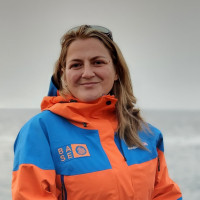
Julieta Orlando
Universidad de Chile e Instituto Milenio BASE
Julieta Orlando, Associate Professor at Universidad de Chile, Deputy Director of the Millennium Institute Biodiversity of Antarctic and Subantarctic Ecosystems, and Vice-President of the Chilean Society of Microbiology, leads a team exploring diverse microbiomes. Using metabarcoding, metagenomics, and functionality predictions, they unravel selectivity, functional roles, and phylogeographic patterns. Their research offers insights into inter-specific associations, microorganisms’ roles in diverse environments, and bridges the gap between macrobial and microbial biogeography.
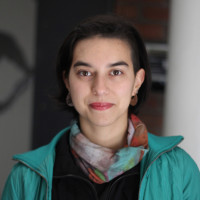
Javiera Ortiz Severín
Universidad de Chile
Javiera Ortiz Severín has PhD Microbiology from the University of Chile. Her research has been focused on bacterial pathogenesis and host-pathogen interactions using alternative infection models, and is currently exploring the relationship between environmental factors, bacterial communities’ composition, antibiotic resistance, and virulence in anthropologically impacted environments. She is a fellow of the Chilean Society for Microbiology (SOMICH) and an Assistant professor at INTA – Universidad de Chile.
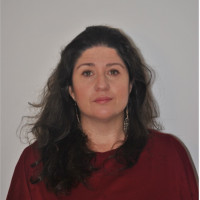
Raquel Quatrini
Universidad San Sebastián, Santiago, Chile
Raquel Quatrini Nyqvist is principal researcher at CCTE Ciencia & Vida, and Associate Professor at Universidad San Sebastián in Santiago, Chile. Her lab seeks to understand the rules that underlie the structure and function of the microbial communities that drive the biogeochemical cycles of iron and sulfur under extreme acidic conditions, in both natural and mineral-mining industrial environments. She is member of the ASM, ISME and SoMiCh societies.

Jean-Baptiste Ramond
Pontificia Universidad Católica de Chile
Jean-Baptiste Ramond is an assistant professor at the Pontificia Universidad Católica de Chile and the leader of the Extreme Ecosystem Microbiomics & Ecogenomics Lab. His group studies the microbial ecology of extreme environments – with an emphasis on the many niches colonized by microorganisms in deserts/drylands – using a suite of meta’omics’, biochemical and classical microbiology approaches.
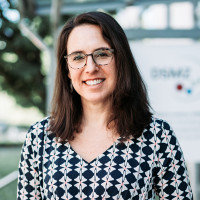
Amber Hartmann Scholz
Leibniz Institute DSMZ
Dr. Amber Hartman Scholz is a microbiologist and Head of the Science Policy & Internationalization Department at the Leibniz Institute DSMZ in Braunschweig, Germany. She leads projects on access and benefit sharing, digital sequence information, and co-founded the DSI Scientific Network and German Nagoya Protocol Hub. She held previous science policy posts in the White House Office of Science and Technology Policy (OSTP), the National Cancer Institute, and the California State Senate Environmental Quality Committee. She received her PhD in Biology from the Johns Hopkins University in 2009.
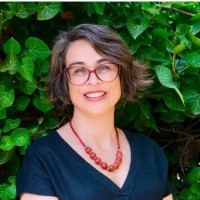
Nicole Trefault
Universidad Mayor in Chile
Nicole Trefault is the Vice President for Research at Universidad Mayor in Chile. She is a Biochemist and holds a PhD in Molecular Genetics and Microbiology, with extensive experience in environmental and applied microbiology. Her research interests are microbial ecology of phytoplankton from polar areas, ecotoxicogenomics and microbial associations, including symbiosis in extreme environments.

Pascale Vonaesch
University of Lausanne
Pascale Vonaesch works on the role of the microbiota in nutrition-related diseases with a focus on child undernutrition as well as the triad linking nutrition, intestinal infection and the microbiota. Her current focus is on the development of microbiota-targeted interventions to ameliorate the current nutritional therapies, especially for under- and overnutrition and related health effects.
Details
- Start:
- January 9 @ 9:00 am SMT
- End:
- January 10 @ 12:30 pm SMT
- Cost:
- Free
- Event Categories:
- Events, featured-event
- Website:
- https://www.microbiotavault.org/event/glomine/